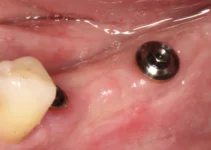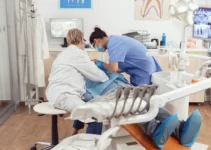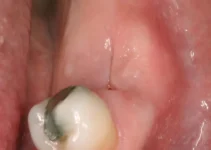Visiting a sleep clinic can be a transformative experience for those struggling with sleep disorders. These specialized centers provide expert diagnoses and tailored treatment plans that address various sleep-related issues, from insomnia to sleep apnea. By leveraging advanced technologies and experienced professionals, sleep clinics offer a pathway to better sleep and, consequently, improved overall health. Understanding the comprehensive assessments and support systems available can empower individuals to make informed decisions about their sleep health.
Understanding Sleep Clinics
Sleep clinics play a vital role in diagnosing and treating a range of sleep disorders. With increasing awareness about the importance of quality sleep, these clinics have become essential for maintaining both physical and mental health. They are equipped with advanced technology and staffed by specialists who understand the intricate details of sleep science, providing comprehensive care tailored to individual needs.
The process often involves an initial consultation, followed by sleep studies or polysomnography, which records various physical activities during sleep. These tests help identify issues such as sleep apnea, insomnia, and restless legs syndrome. The aim is to develop a personalized treatment plan that improves the patient’s quality of life by enhancing sleep patterns.
What is a Sleep Clinic?
A sleep clinic is a medical facility dedicated to the diagnosis and treatment of sleep disorders. They are designed to create a comfortable environment where patients can be closely monitored overnight. These clinics are staffed by sleep specialists, respiratory therapists, and technicians who are well-versed in sleep medicine. Their expertise ensures that patients receive accurate diagnoses and effective treatments.
Sleep clinics employ a variety of diagnostic tools, including sleep studies, also known as polysomnography. These studies measure multiple parameters like brain waves, heart rate, breathing patterns, and oxygen levels while a person sleeps. By analyzing these data, sleep specialists can pinpoint specific issues and recommend appropriate interventions.
Furthermore, sleep clinics often provide education and lifestyle advice to help patients adopt healthier sleep habits. This holistic approach aims to address not just the symptoms but also the underlying causes of sleep disturbances. By doing so, sleep clinics contribute significantly to overall well-being.
Common Sleep Disorders Diagnosed
Sleep clinics diagnose a wide range of sleep disorders, each with unique symptoms and impacts on health. Some of the most common include:
- Obstructive Sleep Apnea (OSA): Characterized by repeated episodes of blocked airflow during sleep, leading to disrupted sleep and low oxygen levels. OSA is often associated with loud snoring and can increase the risk of cardiovascular diseases.
- Insomnia: A condition marked by difficulty falling or staying asleep. Chronic insomnia can lead to daytime fatigue, mood disturbances, and decreased cognitive function.
- Restless Legs Syndrome (RLS): Involves an overwhelming urge to move the legs, often accompanied by uncomfortable sensations. This can significantly disrupt sleep and affect daytime activities.
Other less common but impactful sleep disorders include narcolepsy, which causes excessive daytime sleepiness, and parasomnias, such as sleepwalking and night terrors. These conditions can significantly affect a person’s life if not properly managed.
Diagnosis of these disorders typically involves a combination of patient history, physical examination, and sleep studies. Treatment options vary depending on the specific disorder and can range from lifestyle changes and medications to the use of devices like CPAP machines for sleep apnea.
Understanding the role and function of sleep clinics can be the first step towards better sleep health. For more insights into how sleep affects your overall well-being and ways to improve your sleep, explore our other articles.
Benefits of Attending a Sleep Clinic
Attending a sleep clinic can offer a multitude of benefits that are essential for maintaining overall health and well-being. Many individuals struggle with sleep disorders that can significantly impact their daily lives. By seeking help from a sleep clinic, one can receive professional guidance, accurate diagnoses, and effective treatments tailored to their specific needs. This section delves into the various advantages of utilizing the services offered by sleep clinics.
Sleep clinics are staffed with experienced professionals who specialize in sleep medicine. These experts use advanced technology and methodologies to monitor and assess sleep patterns. By doing so, they are able to identify the root causes of sleep disturbances and develop effective strategies to address them. Moreover, attending a sleep clinic provides patients with the opportunity to be part of a structured program designed to improve their sleep quality and overall health.
Whether struggling with insomnia, sleep apnea, restless leg syndrome, or any other sleep disorder, a sleep clinic offers a supportive and informed environment to guide individuals towards better sleep and a healthier lifestyle.
Improved Sleep Quality
One of the primary benefits of attending a sleep clinic is the significant improvement in sleep quality. Poor sleep can lead to a cascade of health issues, including impaired cognitive function, weakened immune response, and increased susceptibility to chronic conditions like hypertension and diabetes. Sleep clinics offer specialized interventions that are proven to enhance the quality of sleep.
For instance, continuous positive airway pressure (CPAP) therapy is a common treatment for obstructive sleep apnea. Studies have shown that CPAP therapy can greatly improve sleep quality, reduce daytime sleepiness, and lower the risk of cardiovascular complications. Additionally, behavioral therapies like cognitive-behavioral therapy for insomnia (CBT-I) have been demonstrated to be highly effective in addressing sleep-related issues.
Moreover, the guidance provided by sleep specialists can help patients adopt healthier sleep habits. Establishing a regular sleep schedule, creating a conducive sleep environment, and avoiding stimulants before bedtime are some of the advice that can lead to substantial improvements in sleep quality.
Comprehensive Sleep Assessments
An essential aspect of sleep clinics is their ability to conduct comprehensive sleep assessments. These assessments are critical in accurately diagnosing sleep disorders and understanding their underlying causes. Sleep assessments often involve overnight polysomnography, home sleep tests, and thorough medical evaluations.
During an overnight polysomnography, various physiological parameters such as brain activity, eye movement, heart rate, and breathing patterns are monitored. This allows specialists to gather detailed data on the patient’s sleep architecture and to identify abnormalities that might be disrupting sleep. The data collected is invaluable in forming an accurate diagnosis.
Home sleep tests, on the other hand, are convenient for patients who prefer to be assessed in their natural sleep environment. These tests are less invasive and can still provide sufficient information to diagnose conditions like sleep apnea. The comprehensive nature of these assessments ensures that the root causes of sleep disorders are identified and addressed effectively.
The thorough evaluation process at sleep clinics not only aids in diagnosis but also helps in tailoring personalized treatment plans that are most effective for each individual patient.
Personalized Treatment Plans
Another significant benefit of attending a sleep clinic is the development of personalized treatment plans. Each individual has unique sleep patterns, medical histories, and lifestyle factors that must be considered when devising an effective treatment strategy. Sleep clinics excel in creating customized plans that cater to the specific needs of each patient.
Personalized treatment plans often include a combination of medical interventions, lifestyle changes, and behavioral therapies. For example, patients diagnosed with insomnia may receive a blend of medication and CBT-I to tackle both the physiological and psychological aspects of the disorder. Those with sleep apnea might be recommended CPAP therapy along with weight management strategies.
Moreover, the monitoring and follow-up provided by sleep clinics ensure that the treatment plans are adjusted as needed. This dynamic approach allows for continuous improvement in the patient’s sleep health and overall well-being.
In conclusion, attending a sleep clinic offers numerous benefits that can significantly enhance one’s quality of life. From improved sleep quality and comprehensive assessments to personalized treatment plans, sleep clinics provide indispensable services for those struggling with sleep disorders. For more insights into how to achieve better sleep and overall health, explore our other articles on related topics.
Preparing for Your Sleep Clinic Visit
When you are scheduled for a visit to a sleep clinic, it’s natural to have questions and maybe even some anxiety. Understanding the process and what you can do to prepare can alleviate some of this and help ensure that your appointment is as effective as possible. This article aims to shed light on the steps you can take to prepare for your sleep clinic visit.
Sleep clinics offer a range of diagnostic tests to evaluate various sleep-related issues, from insomnia to sleep apnea. By knowing what to expect and how to prepare, you can help facilitate a smoother experience and obtain more accurate results. Here’s a guide to help you navigate this aspect of your healthcare journey.
What to Expect During the Visit
During your initial visit to a sleep clinic, you can expect a comprehensive evaluation that includes both a medical and a sleep history review. The specialists will likely ask you about your regular sleep patterns, any issues you’ve been experiencing, and your general health. Understanding these factors helps them tailor a diagnostic plan suited to your individual needs.
Typically, a sleep study or polysomnogram is conducted. This involves an overnight stay at the clinic where various physiological parameters such as brain activity, eye movements, heart rate, and breathing patterns are monitored. Don’t worry; this process is non-invasive and aims to gather data that will help in diagnosing any sleep disorders you might have. In some cases, additional tests may be recommended, such as the multiple sleep latency test (MSLT) to measure how quickly you fall asleep during the day, or the maintenance of wakefulness test (MWT) to assess your ability to stay awake. These tests are crucial for diagnosing conditions like narcolepsy and excessive daytime sleepiness.
How to Prepare in Advance
Preparation is key to ensuring that your sleep study is as effective as possible. Here are some tips to help you get ready:
- Make a list of your sleep-related symptoms and how long you’ve been experiencing them.
- Document any current medications you’re taking, as well as over-the-counter drugs and supplements.
- Keep a sleep diary for one to two weeks before your visit, noting your sleep and wake times, as well as the quality of your sleep.
On the day of your appointment, try to avoid caffeine and alcohol, as these substances can affect the sleep study results. Bring comfortable clothing to sleep in, and any personal items that might help you feel more at ease, such as a favorite pillow or blanket. Remember, the goal is to replicate your typical sleep environment as closely as possible. Also, make sure to follow any specific instructions given by your sleep clinic. They may ask you to refrain from napping or to adjust your activity levels on the day of the study. Adhering to these guidelines can significantly impact the accuracy of your diagnosis.
By following these preparation tips and understanding what to expect during your visit, you can contribute to a more efficient and accurate sleep study. This preparation not only aids in your diagnosis but also sets the stage for effective treatment.
We encourage you to continue exploring our articles to gain more insights into sleep health and how to manage various sleep disorders effectively.
Choosing the Right Sleep Clinic
With the increasing prevalence of sleep disorders in today’s fast-paced world, choosing the right sleep clinic has become more important than ever. Ensuring you select a clinic that meets your specific needs can make a significant difference in the quality of your diagnosis and treatment. This guide will explore what to consider when choosing a sleep clinic and the crucial questions to ask before booking an appointment.
Many sleep clinics offer a range of services, from diagnosing common sleep disorders like insomnia and sleep apnea to tackling more complex issues such as narcolepsy and restless leg syndrome. It’s essential to find a clinic that not only provides comprehensive services but also boasts a team of qualified professionals.
Beyond services and qualifications, logistics matter. Factors such as location, availability of appointments, and insurance acceptance can all impact your decision. In the following sections, we’ll break down these considerations in more detail to help you make an informed decision.
Factors to Consider
When selecting a sleep clinic, consider the range of services they offer. A good clinic should provide diagnostic tests like polysomnography (sleep study), multiple sleep latency tests (MSLT), and home sleep apnea testing (HSAT). Additionally, they should offer treatment options, including Continuous Positive Airway Pressure (CPAP) therapy, cognitive behavioral therapy for insomnia (CBT-I), and other tailored treatments.
The qualifications and experience of the staff are crucial. Verify if the clinic employs board-certified sleep medicine specialists. Look for clinicians with a background in pulmonology, neurology, or psychiatry, as these specialties are closely related to sleep disorders. Furthermore, check for affiliations with reputable medical institutions or universities, which often indicate a higher standard of care.
Location and accessibility are practical but critical factors. A conveniently located clinic can significantly reduce travel stress, encouraging regular appointments and consistent treatment adherence. Additionally, consider the clinic’s office hours and whether they accommodate your schedule, including availability for overnight studies.
Questions to Ask Before Booking
Before booking an appointment, it’s essential to ask critical questions to ensure the clinic can meet your needs. Begin by inquiring about the clinic’s diagnostic and treatment capabilities. Ask what types of sleep studies they conduct and the conditions they treat. Understanding their full scope of services can help determine if the clinic is well-equipped to handle your specific sleep issues.
Next, delve into the qualifications and experience of the medical team. Ask if the sleep specialists are board-certified and about their experience in treating sleep disorders. Information about the team’s background can provide peace of mind and confidence in the care you’ll receive.
- Do you treat both pediatric and adult sleep disorders?
- What is the process for a sleep study, and how should I prepare?
- How soon can I expect results and a treatment plan after the study?
- Does the clinic work with my insurance provider?
- What are the follow-up procedures and ongoing support like?
Lastly, don’t forget to ask about logistics and practical considerations. Understand the clinic’s location, parking availability, and the flexibility of scheduling appointments. Ensure they accept your insurance and clarify any out-of-pocket costs before committing to an appointment.
Choosing the right sleep clinic can be a daunting task, but armed with the right information, you can make a well-informed decision. Ready to dive deeper into the world of sleep health? Check out our other articles for more insights and tips on managing sleep disorders effectively.
Frequently Asked Questions About Sleep Clinics
If you’re considering visiting a sleep clinic due to struggles with sleep, you might have some questions about what to expect and how it can help improve your sleep health.
What services do sleep clinics offer to help improve sleep?
Sleep clinics provide comprehensive evaluations and treatments for a wide range of sleep disorders. These services often include sleep studies, also known as polysomnograms, which monitor sleep stages, breathing patterns, brain waves, and heart rates while one sleeps. Other common services include treatment for sleep apnea, insomnia counseling, CPAP fitting and management, and behavioral therapy for healthier sleep habits.

My name is Salman Kapa, a 73-year-old expert in bone regeneration and dental implantology. With decades of experience in the field, I am dedicated to advancing our understanding of oral health and hygiene. Through my research and writing, I aim to contribute to the development of innovative solutions in dental care.




